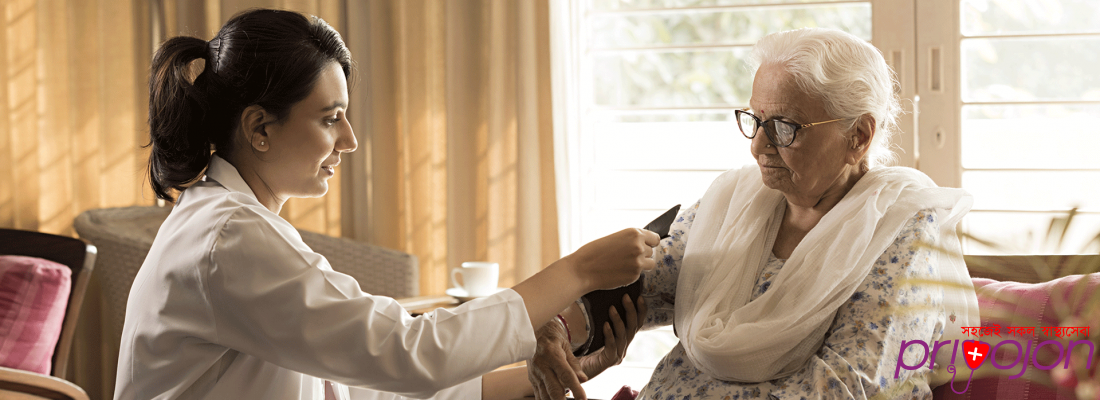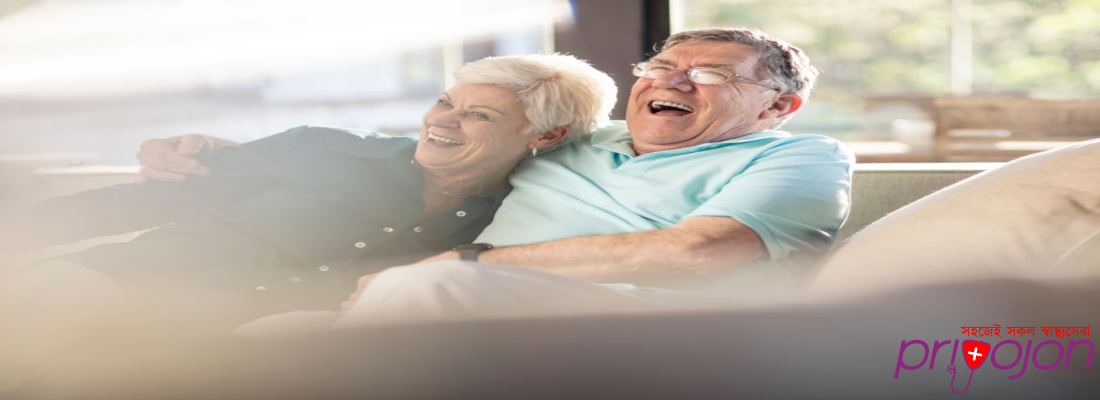Shared on 05-04-2020
Four Things You Need to Know About Post-Stroke Care
Four Things You Need to Know About Post-Stroke Care

your loved one has suffered a stroke you need to know as much as possible about in-home stroke care. Hospitals and rehabilitation centers can only keep patients for the length of time allowed by insurance coverage. That means that most likely your loved one will be discharged before they are fully recovered. The transition home can be a difficult one but with knowledge on how to recover from a stroke at home, you can properly prepare. You will need to be ready to support your loved one and help them continue their recovery at home. Depending upon the extent of the damage left by the stroke, this may be a difficult task, but with planning and support from previous stroke survivors, you can care for your loved one. Here are the four things you need to know about in-home stroke care:
1. Prioritize care and develop a plan: Talk to the care manager at the healthcare facility where your loved one is receiving care. Ask the manager to give you all the resources you need for care, whether it is in print, online or in the community. Ask them to tell you, in detail, what the first steps should be when your loved one goes home. Ask for specific details on your loved one’s physical abilities and deficiencies and their recommendations for home care. Based on their input you can prioritize care and develop a plan. Take the following into account:
- Scheduling: Will you be able to provide full-time care or do you need to put together a schedule of caregivers? How will you get your loved one to various health care appointments?
- Care at home: How will take care of your loved one’s needs at home? Do you need to line up home nursing care? Will you be able to help them with grooming and personal hygiene? Can you take care of their medications and make sure they adhere to the schedule?
2. Get organized. When you return home, take an inventory of the house and things that may need to be adjusted or adapted to meet your loved one’s needs. Make a list of the changes that need to be made, who will make them and when. This will give you some sense of control over the changes. You may not have all the changes addressed by the time your loved one comes home but you will have a good start.
3. Adapt daily activities: Depending upon the deficiencies left by the stroke, your loved one may need assistance to carry out activities of daily living. You may need to install ramps to enter the house. If the stroke has disabled one side of your loved one’s body, new tools will be needed to make cooking with one hand possible. Walkers, canes and other assistive devices may be needed to help prevent falls. Talking with other stroke survivors is the best way to find solutions to these problems. Strokefocus.net is a nationwide group founded by stroke survivors and can help you to find support groups in your area. Their podcasts with stroke survivors will help your loved one to learn how to live with stroke and find things like cooking equipment and other adaptive tools and devices.
4. Be versatile: Depending upon the extent of the damage left by the stroke, your loved one is liable to be frustrated. Ongoing physical and occupational therapy is tiring. Physical deficiencies are frightening. Approach post-stroke care slowly and adapt as you do. Things probably won’t be the same each day. As your loved one becomes accustomed to the reality of being a stroke survivor emotional support will be needed and together you can develop new habits and schedules. Post-stroke care can be a big task, but with the right tools, knowledge, and support, it can be manageable.
your loved one has suffered a stroke you need to know as much as possible about in-home stroke care. Hospitals and rehabilitation centers can only keep patients for the length of time allowed by insurance coverage. That means that most likely your loved one will be discharged before they are fully recovered. The transition home can be a difficult one but with knowledge on how to recover from a stroke at home, you can properly prepare. You will need to be ready to support your loved one and help them continue their recovery at home. Depending upon the extent of the damage left by the stroke, this may be a difficult task, but with planning and support from previous stroke survivors, you can care for your loved one. Here are the four things you need to know about in-home stroke care:
1. Prioritize care and develop a plan: Talk to the care manager at the healthcare facility where your loved one is receiving care. Ask the manager to give you all the resources you need for care, whether it is in print, online or in the community. Ask them to tell you, in detail, what the first steps should be when your loved one goes home. Ask for specific details on your loved one’s physical abilities and deficiencies and their recommendations for home care. Based on their input you can prioritize care and develop a plan. Take the following into account:
- Scheduling: Will you be able to provide full-time care or do you need to put together a schedule of caregivers? How will you get your loved one to various health care appointments?
- Care at home: How will take care of your loved one’s needs at home? Do you need to line up home nursing care? Will you be able to help them with grooming and personal hygiene? Can you take care of their medications and make sure they adhere to the schedule?
2. Get organized. When you return home, take an inventory of the house and things that may need to be adjusted or adapted to meet your loved one’s needs. Make a list of the changes that need to be made, who will make them and when. This will give you some sense of control over the changes. You may not have all the changes addressed by the time your loved one comes home but you will have a good start.
3. Adapt daily activities: Depending upon the deficiencies left by the stroke, your loved one may need assistance to carry out activities of daily living. You may need to install ramps to enter the house. If the stroke has disabled one side of your loved one’s body, new tools will be needed to make cooking with one hand possible. Walkers, canes and other assistive devices may be needed to help prevent falls. Talking with other stroke survivors is the best way to find solutions to these problems. Strokefocus.net is a nationwide group founded by stroke survivors and can help you to find support groups in your area. Their podcasts with stroke survivors will help your loved one to learn how to live with stroke and find things like cooking equipment and other adaptive tools and devices.
4. Be versatile: Depending upon the extent of the damage left by the stroke, your loved one is liable to be frustrated. Ongoing physical and occupational therapy is tiring. Physical deficiencies are frightening. Approach post-stroke care slowly and adapt as you do. Things probably won’t be the same each day. As your loved one becomes accustomed to the reality of being a stroke survivor emotional support will be needed and together you can develop new habits and schedules. Post-stroke care can be a big task, but with the right tools, knowledge, and support, it can be manageable.
Popular Health Tips
All aspects of home care for seniors can be confusing. When an event occurs, such as a fall, illness, or exacerbation of a previous problem, the ti...
While the impact of work burnout on the brain has been widely studied, less research has been done on how caregiver burnout is more than just stres...
your loved one has suffered a stroke you need to know as much as possible about in-home stroke care. Hospitals and rehabilitation centers can only...
When it becomes evident that our aging parents or loved ones need some additional assistance in the home, the next step is broaching the subje...
No one is ever really prepared for a healthcare situation, be it...
Medically reviewed by
Mrs Dr. Maherunnessa Masud
MBBS, DCH
15 Years of Experience
- Written by the Priyojon Editorial Team




